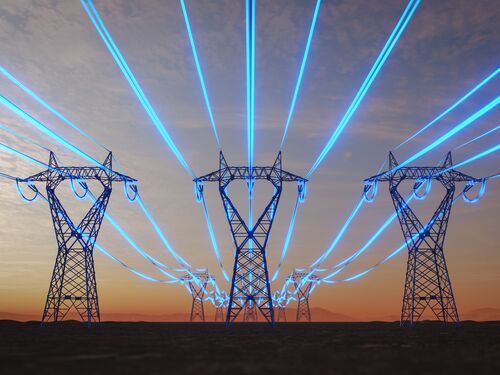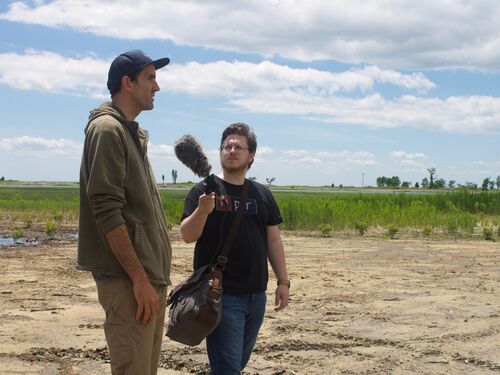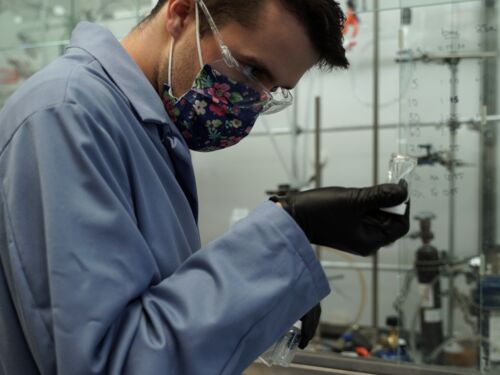Two Decades of EngineerGirl: Building a More Diverse Field
Feature Story
By Josh Blatt
Last update July 6, 2022
Despite some gains in recent years, women make up only 15% of the engineering workforce, according to the latest U.S. Census. A recent National Academies report finds that women who pursue engineering and other STEM careers face a range of barriers, including pay inequity, higher teaching loads, and sexual harassment.
However, the roadblocks to pursuing a career in engineering commonly appear much earlier in the STEM pathway, said Simil Raghavan, a program officer at the National Academy of Engineering (NAE). “All too often, girls are discouraged from pursuing their interest in the sciences, and start dropping away from STEM paths around middle school.”
Raghavan manages EngineerGirl, a program that aims to reverse this trend and which is celebrating its 20th anniversary this year. The program is an integral part of NAE’s multipronged efforts to address the engineering profession’s long-standing diversity gaps.
“We strive to connect with young women at this crucial stage, reinforce their interest in engineering, empower them to explore the field, and engage with the community,” said Raghavan.
EngineerGirl’s website offers resources on how to challenge stereotypes and DIY engineering projects for organizations, parents, and teachers, but the program centers on making direct connections with young would-be engineers to help close early pinch points in the pathways to becoming an engineer.
Its annual writing contest provides an opportunity for youth to win prizes for writing about engineering and its impact on the world. Over the past 20 years, more than 10,000 students have participated, writing about engineering’s role in meeting and defeating the challenges presented by COVID-19, its potential for helping endangered animals, ethical considerations faced by engineers, and other critical topics.
NAE’s EngineerGirl also runs an ambassador program that selects high school students and provides them with training and funding to run engineering-focused projects in their communities.
In addition, EngineerGirl offers networking opportunities at events like NAE’s National Meeting. At this year’s meeting in May, EngineerGirl Ambassadors and hundreds of students from local schools attended in order to celebrate the program’s 20th, meet like-minded students, and network with female engineers and researchers. The attendees heard a keynote address from NAE member and SpaceX CEO Gwynne Shotwell, and engaged with speakers after attending the Lillian Gilbreth Lecture series — named after an early industrial engineer and the first female member of NAE.
At the meeting, Sophie Poole, who was a 2019-2020 EngineerGirl Ambassador and is now a rising sophomore at Harvey Mudd College, spoke to NAE members and her fellow engineers-to-be about her experience with the program.
“My passion for STEM was unusual, and I felt a little isolated and out of place,” said Poole. “The connection I had with the other ambassadors, bonding over our geeky interest in robotics and math and all things STEM, was incredibly impactful for me. I was surprised at how quickly we connected; I had never made friends so fast. That connection gave me a lot of hope for finding ‘my people’ as well as my profession in STEM!”
As an EngineerGirl Ambassador, Poole designed and implemented a STEM outreach program for female middle school students experiencing poverty. Before holding a four-week workshop for them, she interviewed Maria Klawe, president of Harvey Mudd College and computer scientist, and Christina Zavaleta, a bioengineer at the University of Southern California, about their experiences and their leadership roles.
“With my project as an EngineerGirl Ambassador, I made a profound life-changing discovery that completely altered my view of what a leader should be,” said Poole. “These women who had risen to the very top of their professions were humble, great listeners, sought help from others, and created environments where everyone was supported and had a voice.”
Featured Publication
Sexual Harassment of Women: Climate, Culture, and Consequences in Academic Sciences, Engineering, and Medicine
Consensus Study Report
·2018
Over the last few decades, research, activity, and funding has been devoted to improving the recruitment, retention, and advancement of women in the fields of science, engineering, and medicine. In recent years the diversity of those participating in these fields, particularly the participation of w...
View details
More like this
Discover
Events
Right Now & Next Up
Stay in the loop with can’t-miss sessions, live events, and activities happening over the next two days.
NAS Building Guided Tours Available!
Participate in a one-hour guided tour of the historic National Academy of Sciences building, highlighting its distinctive architecture, renowned artwork, and the intersection of art, science, and culture.



